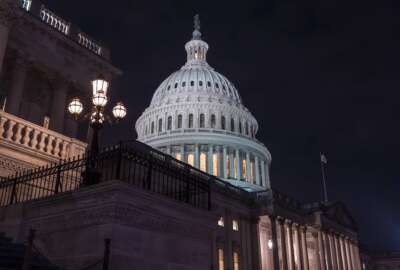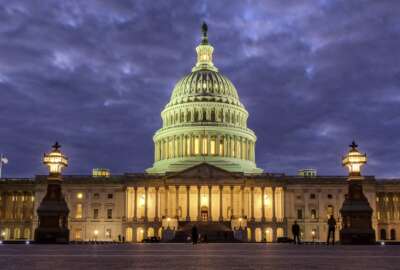Probe fails to link IRS scandal to White House
By STEPHEN OHLEMACHER Associated Press WASHINGTON (AP) — A House Republican investigation faults senior IRS officials in the mistreatment of conservative...
By STEPHEN OHLEMACHER
Associated Press
WASHINGTON (AP) — A House Republican investigation faults senior IRS officials in the mistreatment of conservative groups that applied for tax-exempt status, but could find no link to the White House, according to a report released Tuesday.
The probe isn’t over, although investigators have reviewed 1.3 million pages of documents and interviewed 52 officials. The report, however, marks the end of Rep. Darrell Issa’s tenure leading the investigation.
Issa, a Republican from California, is stepping down as chairman of the House Oversight Committee because of term limits. Issa has repeatedly clashed with the White House and congressional Democrats over the way the IRS treated tea party and other conservative groups.
Rep. Jason Chaffetz, R-Utah, will take over the committee in January. Chaffetz has said his approach to the committee will be less confrontational.
The report does not absolve anyone from blame. Instead, it complains that the IRS and the White House have not fully cooperated with the investigation.
“The White House’s obstruction not only violated the president’s promise of cooperation, but it affected the committee’s fact-finding obligations,” the report said.
An IRS spokesman said the agency had no comment.
Rep. Elijah Cummings of Maryland, the top Democrat on the Oversight Committee, said Issa did not share the report with Democrats before releasing it, “bypassing the normal congressional vetting process designed to distinguish fact from fiction.”
“It is revealing that the Republicans, yet again, are leaking cherry-picked excerpts of documents to support their preconceived political narrative without allowing committee members to even see their conclusions or vote on them first,” Cummings said in a statement.
The report says conservative groups were given improper scrutiny for more than two years from 2010 to 2012. It says senior IRS officials covered up the misconduct and misled Congress about it.
The report specifically faults eight senior IRS leaders who “were in a position to prevent or to stop the IRS’s targeting of conservative applicants.”
The eight include former Commissioner Douglas Shulman, former acting Commissioner Steven Miller, and Lois Lerner, who used to head the division that processes applications for tax-exempt status.
“Each of these leaders could have and should have done more to prevent the IRS’s targeting of conservative tax-exempt applicants,” the report said.
Both Shulman and Miller told Congress last year that they first learned that conservative groups were being singled out for additional scrutiny in the spring of 2012.
They said they put a stop to it and cooperated with a review by the agency’s inspector general, who issued a report about a year later. During that year, Shulman and Miller were repeatedly asked by members of Congress about the treatment of conservative groups by the IRS. But at congressional hearings and in letters, they didn’t reveal anything.
Shulman’s term as commissioner ended before the controversy came to light in May 2013. President Barack Obama forced Miller to resign shortly after Lerner publicly acknowledged that conservative groups had been mistreated.
Lerner, who has become a central figure in several congressional investigations, was forced to retire about a year ago. She has refused to testify before Congress, though her lawyer said she has cooperated with an investigation by the Justice Department.
In a brief statement to Issa’s committee, Lerner said she had done nothing wrong.
The IRS told Congress in June that it had lost an unknown number of emails to and from Lerner when her computer hard drive crashed in 2011. The agency’s inspector general is trying to retrieve them from old computer tapes.
The IG’s office told Congress in November that investigators have retrieved some data that may contain emails, but the agency released no details.
Other Lerner emails produced by the IRS show that Lerner had discussions with Justice Department officials about concerns over tax-exempt groups getting involved in politics. But so far, investigators have not released any documents showing that anyone outside the IRS directed the agency to mistreat conservative groups or even knew it was going on.
Congressional investigators were hoping Lerner’s lost emails would shed light on the matter.
IRS agents were reviewing tea party groups’ applications to determine the amount of political activity the groups were engaged in. Under IRS rules, groups applying for tax-exempt status under section 501(c)4 of the tax code can engage in politics but it cannot be their primary mission.
Donors to these “social welfare” groups cannot deduct contributions from their taxes. But the designation is important because the groups are not required to disclose their donors.
The reviews were happening just as activists and some Democrats in Congress were complaining that tax-exempt conservative groups were spending large amounts of money on political activities.
The scrutiny delayed several hundred applications for more than a year, with agents asking some groups inappropriate questions about donors, said the inspector general’s report from 2013.
Congressional Democrats have maintained that some liberal groups were mistreated as well. Issa’s report says liberal groups were not subjected to the same level of scrutiny as conservative ones.
___
Follow Stephen Ohlemacher on Twitter: http://twitter.com/stephenatap
Copyright 2014 The Associated Press. All rights reserved. This material may not be published, broadcast, rewritten or redistributed.
Copyright © 2024 The Associated Press. All rights reserved. This website is not intended for users located within the European Economic Area.






